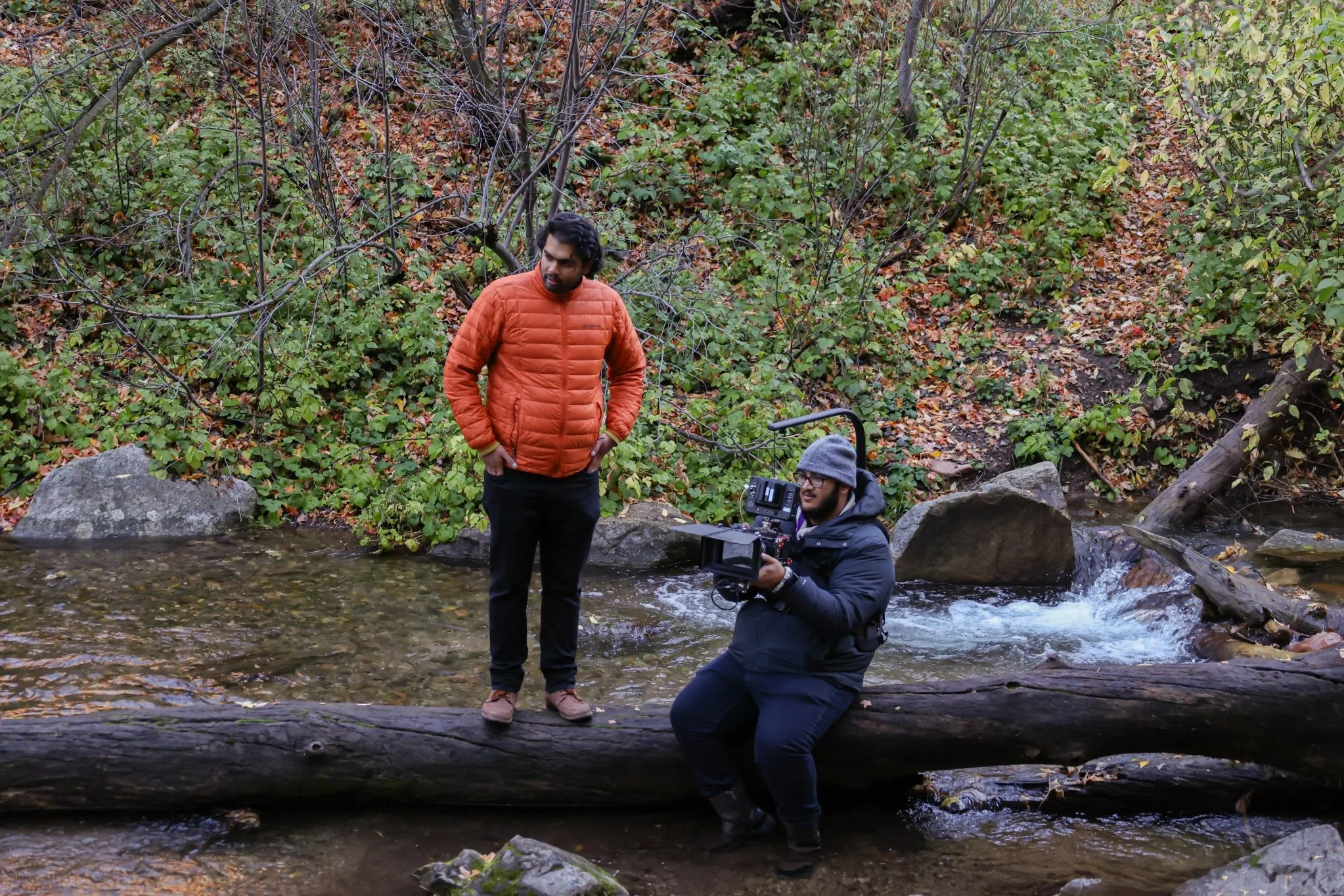Alumni Spotlight: The Untouched Taboos from The Global South through Mustafa Bin Javed’s Lens
Mustafa Bin Javed (left) at work
Mustafa Bin Javed is not just another filmmaker; he is a storyteller bridging cultures, traditions, and silences. He has roots in Pakistan and has been able to shape his film career here in the United States by bringing a different perspective from a unique communal experience. Being passionate about the stories from the Global South, Mustafa experiments with themes of migration, representation, belonging, and identity.
Mustafa is an alumnus from the University of Utah, with a Master of Fine Arts in Film & Media Arts (2025). During his time at the U, he made films that were close to his experience as an immigrant, introducing layered cultural narratives and themes.
As a filmmaker who is deeply passionate about telling stories and utilizing the medium of film, his work has been officially selected and screened at various festivals across the world, including countries like Australia, Canada, Kyrgyzstan, Pakistan, South Korea, Sweden, the United Kingdom, and the United States.
“Land of Roots,” a documentary short made during in the MFA program, is an exploration of oppression against the minorities in Pakistan. Sparked by the riots of Jaranwala,the film asks difficult questions of Mustafa and his fellow Pakistanis, using the camera lens to explore the complexities of hate and tolerance. “Land of Roots” was an official selection at Stockholm City Film Festival, Muslim Film Festival, FOCUS on the fUTure Film Festival, Fear No Film Festival, and the International Motion Picture Awards, and was awarded the ‘Best Direction’ award at the Zappers Film Festival.
Still from “The Ashes”
Mustafa’s most recent film, “The Ashes,” is about an immigrant daughter and her ex-military roommate who clash over performing final rites for the immigrant daughter’s dad; their confined confrontation becomes an emotional exploration of identity, duty, and grief. “The Ashes” explores the relationship between diasporic values and rituals using drama and dark humor, breaking up narratives of belonging and mourning with a fractured ending.
Papa’s Diary is his upcoming debut feature documentary film, which is currently in the development stage. The film’s logline describes the film: “Through an exploration of family archives, a Pakistani filmmaker searches for traces of his father’s love, stifled under patriarchal norms but expressed through the act of picking up a camera.” This film is a personal exploration of how social norms force men to become cruel to each other at times and wear masks to live up to the expectations of their society. He is examining how his dad became who he is, and how that influenced who he has become.
For Mustafa, filmmaking is a way to make sense of the world and his place in it. His filmmaking ethos and his commitment to share unheard stories from his diaspora make Mustafa apart from others. Through his lens, he hopes to bring together the cultures, generations, and conversations across borders. His commitment to telling raw and bold movies makes him an exciting new voice in the Global South and diasporic cinema.
written by Emily Mkrtichian


